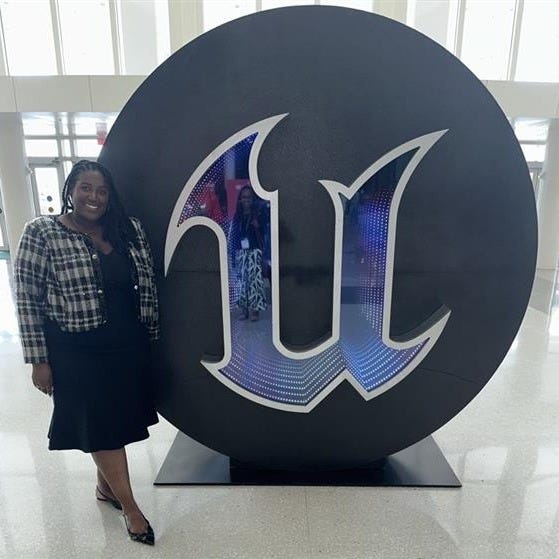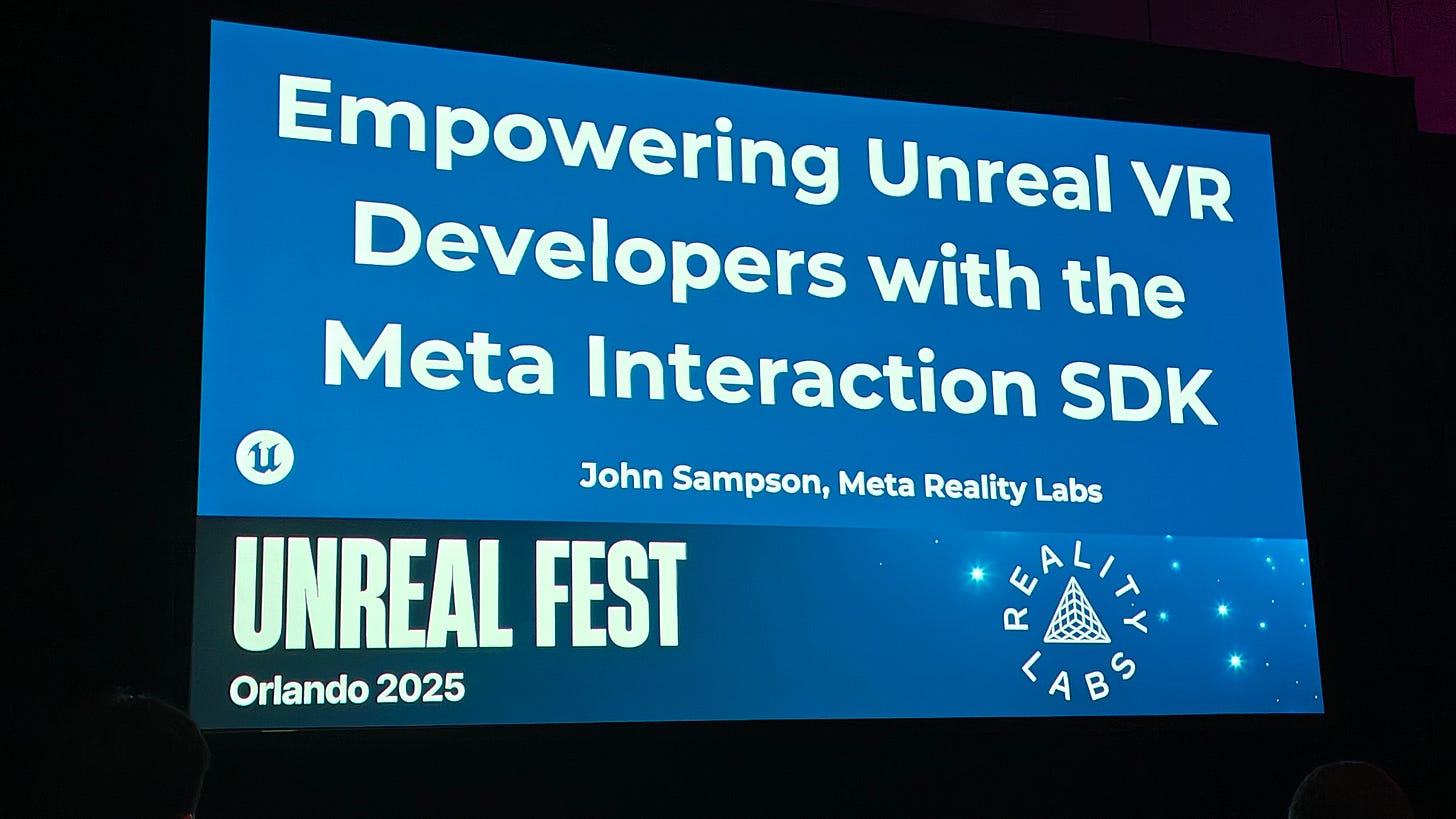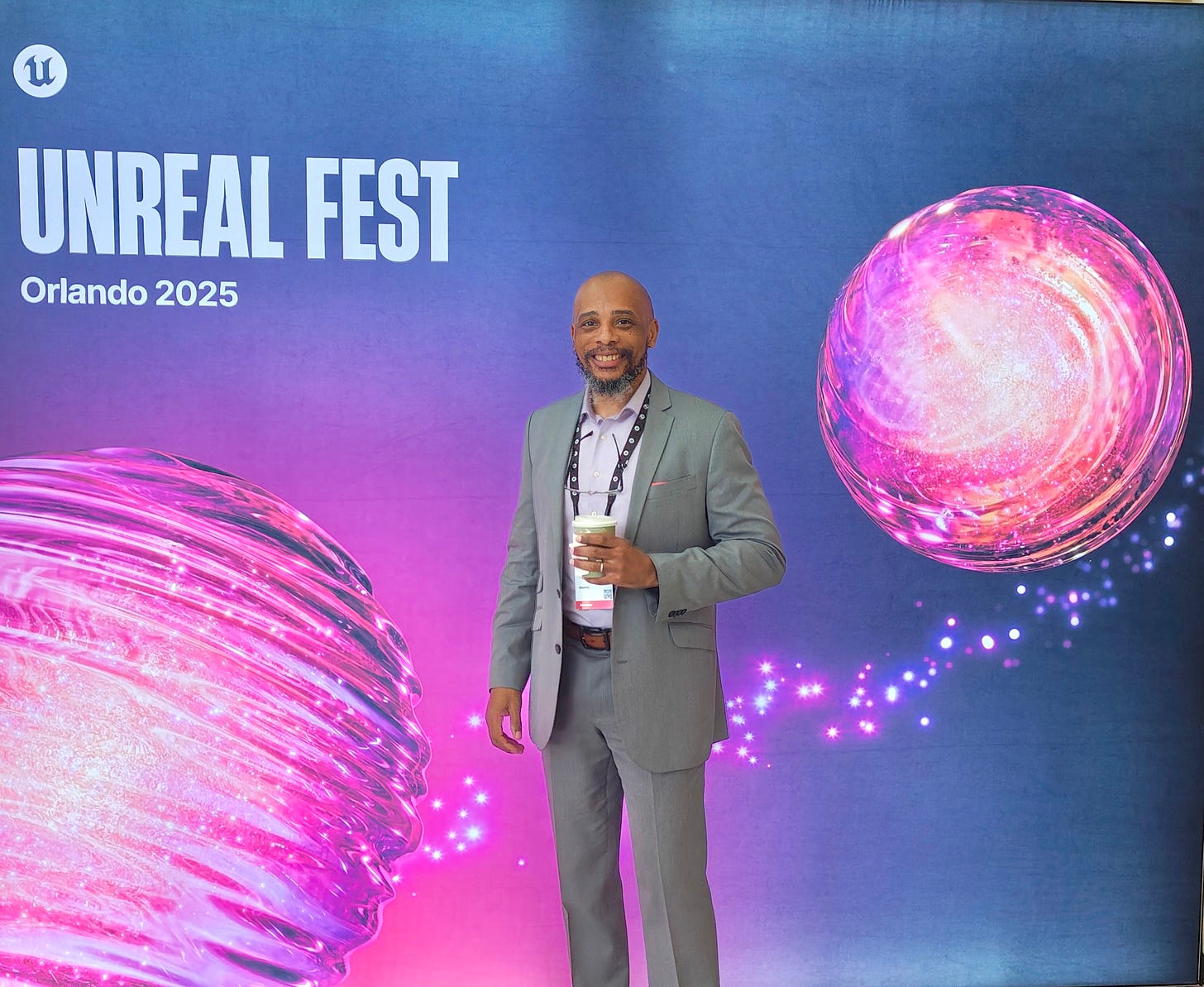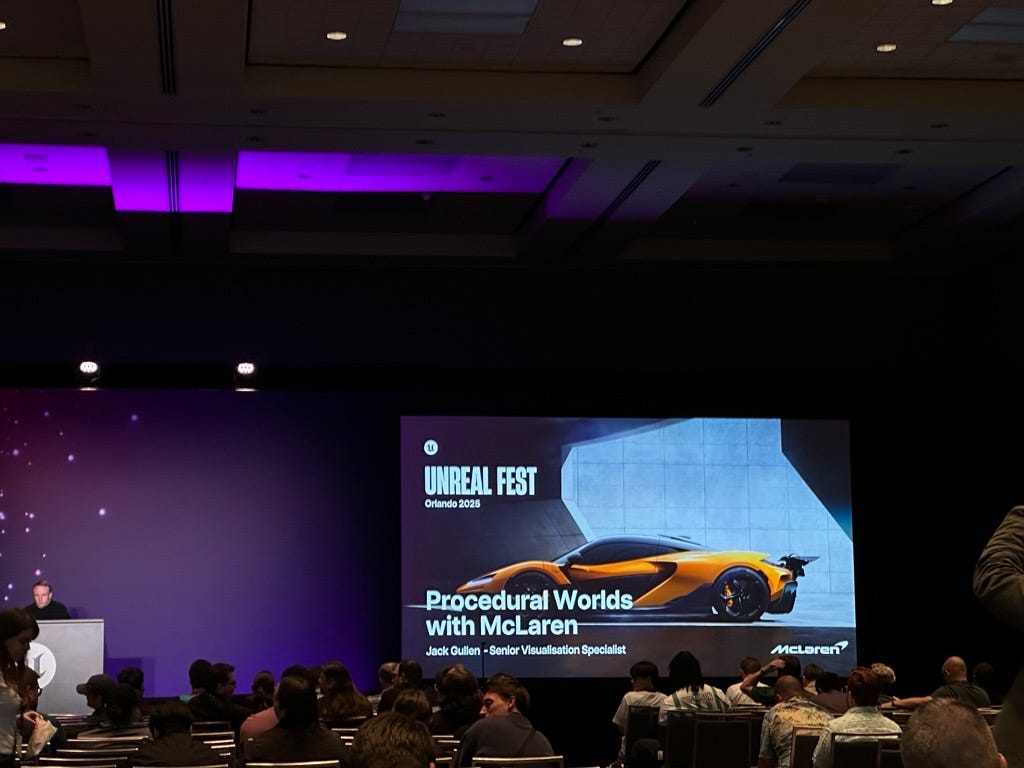Inside Unreal Fest 2025
The future of interactive worlds unveiled
This year, Deloitte’s Unlimited Reality Guild sponsored five members’ attendance at Unreal Fest, an annual conference hosted by Epic Games that brings together creators, developers, innovators, designers, and technologists from around the world, all united by their passion for Unreal Engine, Epic Games’ real-time 3D creation tool. The Unlimited Reality Guild is an immersive community designed to elevate Deloitte practitioners in the rapidly evolving field of spatial computing. By diving deep into extended reality (XR), engaging and interactive experiences using augmented and virtual reality technologies, the Guild helps members to be at the cutting edge of innovation. Members enjoy exclusive learning opportunities, including corporate and university field trips, hands-on labs, premier conferences, and more.
The Guild’s attendees returned from Unreal Fest with transformative insights into real-time 3D technology, poised to apply their newfound knowledge to propel Deloitte's cutting-edge projects. Here are three first-person perspectives from the 3-day event.
Donald Hudson’s story
As a retired military veteran with a background in information systems, I joined Deloitte’s inaugural XR design cohort within the Unlimited Reality Guild, in an unfamiliar step away from my prior experience. Unreal Fest 2025 gave me valuable insights into the evolving landscape of commercial XR. Three key takeaways that stood out are:
CD Projekt Red's innovative optimization: Game developer CD Projekt Red showcased a clever technique using volumetric pixels to represent distant 3D objects—boosting performance without compromising visual quality. This enables richer environments and smoother gameplay.
Meta’s strategic focus on Unreal Engine: Meta's ongoing development of their Unreal Engine Software Development Kit (SDK) was particularly interesting, despite a small team dedicated to the project.
The transformative potential of VR development in VR: The demonstration of VR development interfaces within Unreal Engine was a highlight. Designing 3D environments from within VR offers a more intuitive and efficient perspective, which could revolutionize creative workflows.
Above all, networking with Deloitte colleagues working on commercial XR projects added valuable context around our current strategies, market challenges, and key successes. I'm excited to apply my expanded knowledge, delve deeper into Unreal Engine’s latest features and plugins, and contribute meaningfully back to the Guild.
Amal Pulikkiyil’s story
Unreal Fest 2025 reinforced why I use Unreal Engine: for its immersive shared experiences, from childhood games to playing “It Takes Two” with my fiancée. Now, Unreal Engine 5.6 brings that same magic to high-fidelity VR experiences and streamlines the creation of digital human characters, known as MetaHumans, directly into the editor.
The event also highlighted the promise and limits of GenAI in real-time production. Tools like Midjourney and Stable Diffusion can quickly generate assets that require significant human refinement. NVIDIA’s demos were especially compelling, combining MetaHuman avatars, real-time facial capture, and LLMs for natural, face-to-face interaction with GenAI chatbots.
Meta’s new Interaction SDK exemplified rapid XR prototyping, enabling me to build a VR sword combat prototype for the Meta Quest VR headset in just two hours. Composer Patrick Hart’s procedural music demo further reframed audio as a flexible, data-driven component.
For users like us, these advances can mean:
Faster development of immersive training modules with realistic simulations of complex environments
AI-powered MetaHuman avatars as realistic digital coaches for learning and engagement
GenAI tools that accelerate the creation of digital twins and 3D assets
Streamlined workflows allow quick prototyping and delivery of 3D solutions
In three days, Unreal Fest reshaped my perspective on what’s possible for both indie and enterprise projects. High-fidelity VR, AI-driven digital humans, and procedural audio are now turnkey features that can be used for immersive training, digital twins, and rapid prototyping.
Jeremy Miranda’s story
As an XR Architect, I use Unreal Engine to deliver immersive solutions for our clients—from previsualization and virtual production to enterprise training. I’ve been working with the engine since version 4.5, starting with game development. Today, Unreal Engine has become a key platform for helping organizations visualize and shape their future.
At Unreal Fest 2025, I took part in several sessions that gave me fresh ways to think about building immersive experiences. A big takeaway was that you don’t have to start with perfection; getting something working quickly and improving it through feedback is what matters. I also learned about new tools that make it possible to create richer visuals and smoother performance without slowing things down. Together, these trends point to a clear shift: brands aren’t just commissioning experiences anymore. They’re becoming active creators, shaping their own interactive worlds and communities.
My advice for newcomers to Unreal Engine? Build something. Keep it small, finish it, then build something slightly more complex. That’s how I started—and how I continue to grow. Even now, I’m constantly discovering new corners of Unreal Engine. That’s what keeps it exciting.
Conclusion
As the lights dimmed on Unreal Fest 2025, one thing was clear: the future of digital creation is brighter—and more accessible—than ever.
Curious about spatial computing?
Visit our Spatial AI Consulting Services page to learn more.
This article contains general information only and Deloitte is not, by means of this article, rendering accounting, business, financial, investment, legal, tax, or other professional advice or services. This article is not a substitute for such professional advice or services, nor should it be used as a basis for any decision or action that may affect your business. Before making any decision or taking any action that may affect your business, you should consult a qualified professional advisor. Deloitte shall not be responsible for any loss sustained by any person who relies on this article.
As used in this document, “Deloitte” means Deloitte Consulting LLP, a subsidiary of Deloitte LLP. Please see www.deloitte.com/us/about for a detailed description of our legal structure. Certain services may not be available to attest clients under the rules and regulations of public accounting.
Copyright © 2025 Deloitte Development LLC. All rights reserved.








